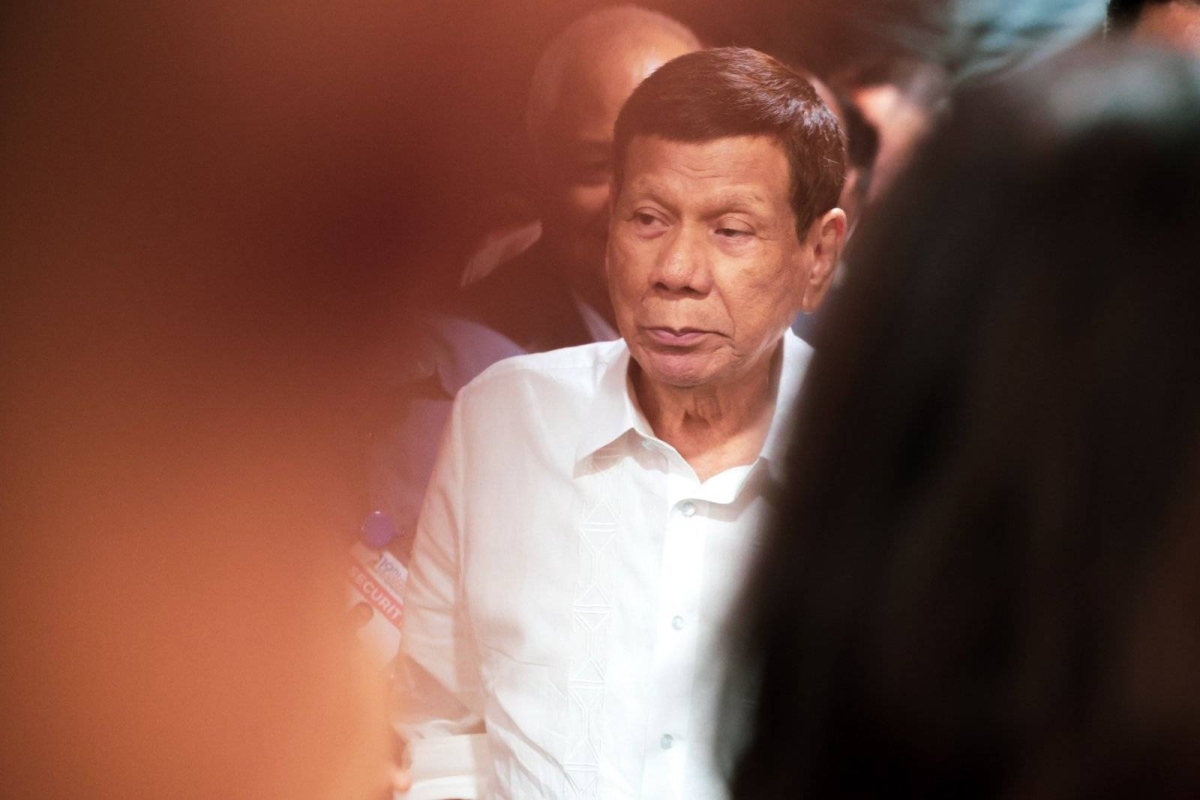Attempt to exclude drug war victims hit

(UPDATE) A LAWYER representing victims of Rodrigo Duterte's bloody drug war on Wednesday denounced the former president's legal team for trying to block their participation in the ongoing proceedings before the International Criminal Court (ICC).
Kristina Conti, counsel for victims before the ICC, criticized Duterte's defense lawyers for challenging the qualifications of victims seeking to take part in the case. In particular, she said their insistence on requiring formal national identification or passports as proof of identity was not only unrealistic but deliberately exclusionary.
"Their insistence on the use of national IDs is unrealistic with the obtention and issuance of the cards plagued with consistent issues of delay," said Conti. "Their suggestion to produce passports is anti-poor, as only the socially mobile have the luxury to avail of cross-country travel."
"These arguments are harsh and disconnected from the lived realities of the poor," she added.
Duterte's defense team submitted a formal objection to the ICC Registry on Monday, raising concerns over procedures regarding victim participation in the ongoing pretrial proceedings against him.
In a four-page filing dated April 7, Duterte's lead counsel Nicholas Kaufman argued that the proposed framework for verifying the identity of victims and appointing their legal representatives could compromise the integrity of the proceedings.
At the core of the defense's objections is the matter of identity verification — a crucial step for victim participation in ICC cases. The Registry had proposed accepting a broad and flexible range of documents, acknowledging the persistent bureaucratic delays in the issuance of national ID cards in the Philippines. But Duterte's legal team pushed back, saying only Philippine national identity cards or passports with updated photographs should be considered valid. In the absence of these, they suggested adhering strictly to the list of IDs accepted by the Philippine Social Security System.
"The use of varied and insufficiently verified identity documents could lead to misidentification, double-counting and the inclusion of false victims," the defense filing said. It urged the court to impose stricter verification protocols to safeguard the credibility of the case and avoid fraud.
Furthermore, Duterte's defense team objected to a Registry proposal allowing two-witness declarations to serve as proof of identity in cases where official documents are unavailable. Citing precedent from ICC proceedings in the Kony and Ongwen cases in Uganda, the defense argued that such declarations should only be used as a last resort and evaluated on a case-by-case basis following independent verification by the Registry.
On the issue of legal representation, Kaufman also challenged the Registry's hybrid approach that would allow both individual lawyers and the Office of Public Counsel for Victims (OPCV) to represent victim applicants. He warned that this dual-track model could lead to logistical complications, redundant filings and ultimately delay the proceedings — violating Duterte's right to a speedy trial.
"To avoid unwieldy proceedings and to respect the rights of the accused, all victim applicants should, for now, be represented solely by the OPCV," the filing concluded.
But for Conti and fellow human rights advocates, the defense's proposal is less about legal order and more about control.
"Limiting the list of possible proofs of identity only discourages victims unnecessarily, almost heartlessly," she said. "This is not about preventing fraud. It's about preventing participation."
The ICC's Victims Participation and Reparations Section (VPRS), which oversees the inclusion of victims in ICC proceedings, had earlier put forward more inclusive guidelines — recognizing that most victims of the Philippine drug war come from economically marginalized communities and are unlikely to possess formal documentation.
Conti confirmed that her team will file a formal rejoinder opposing the defense's motion and backing the VPRS' more accommodating approach.
"Our rejoinder will support the VPRS proposals, which recognize the structural disadvantages many victims face," Conti said. "Justice must be made accessible, not denied through bureaucratic hurdles."
The ICC is currently holding pretrial proceedings in its case against Duterte, who stands accused of crimes against humanity in connection with the thousands of killings under his administration's anti-drug campaign. Human rights organizations estimate that between 12,000 and 30,000 people — mostly poor, urban dwellers — were killed, many in police operations alleged to be extrajudicial. The official death count is more than 6,000.
Despite Duterte's legal maneuvers, the case is gaining traction at The Hague, and victim participation is set to play a key role in shaping the court's eventual ruling.
"This isn't just about paperwork," said Conti. "This is about giving a voice to the silenced. And no amount of legal maneuvering should drown them out."
In his filing, Kaufman said narrowing the range of acceptable documents would enhance the reliability of the identity verification process, thereby minimizing the risk of fraud.
He said using a diverse array of insufficiently verified identification could lead to misidentification, double-counting and the wrongful inclusion of victims, ultimately resulting in unnecessary litigation.
While the Registry acknowledged a backlog in national ID distribution in the Philippines and suggested accepting a wider range of government-issued IDs, like senior citizen cards and voter certifications, the defense dismissed this as a vague assertion that did little to substantiate the need for such a broad list.











